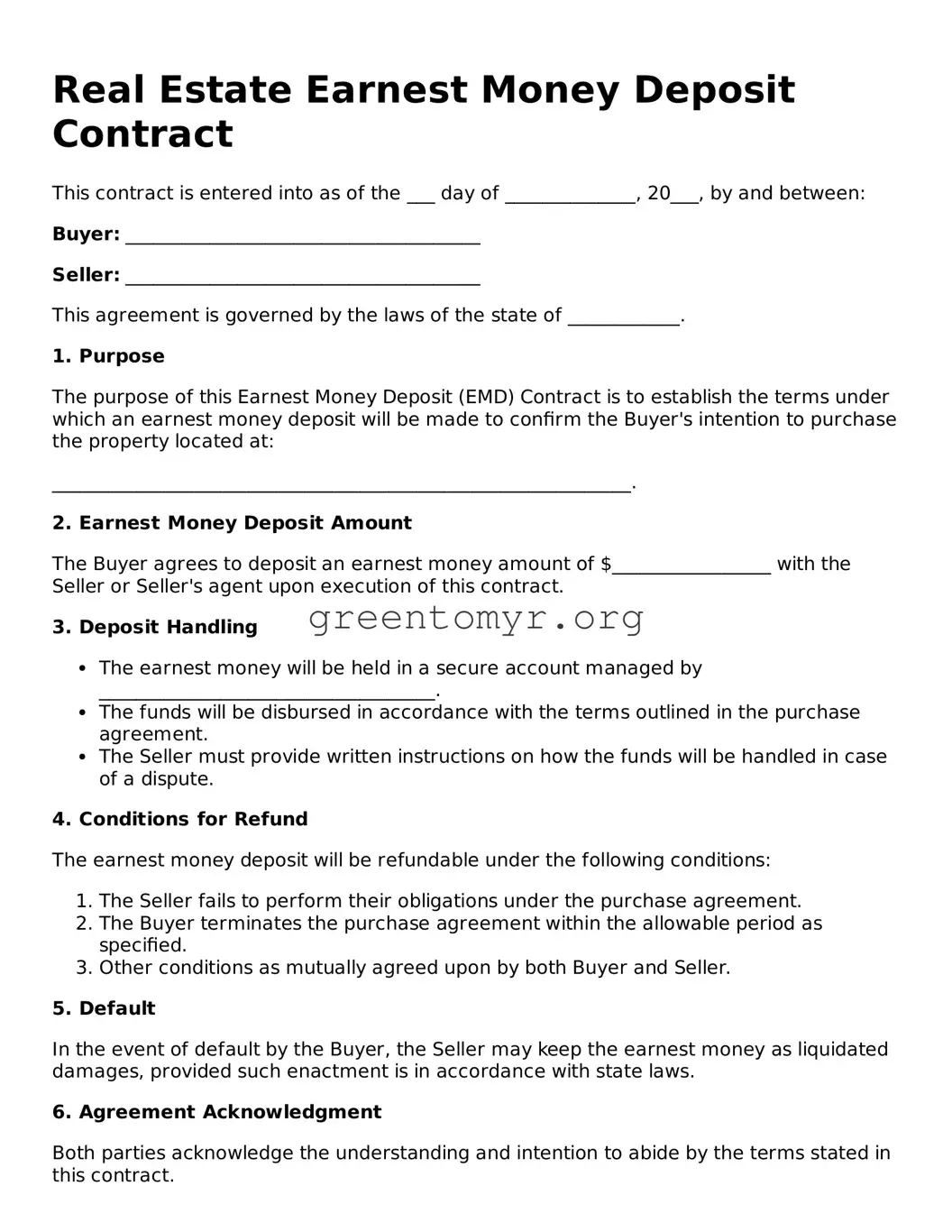Real Estate Earnest Money Deposit Contract
This contract is entered into as of the ___ day of ______________, 20___, by and between:
Buyer: ______________________________________
Seller: ______________________________________
This agreement is governed by the laws of the state of ____________.
1. Purpose
The purpose of this Earnest Money Deposit (EMD) Contract is to establish the terms under which an earnest money deposit will be made to confirm the Buyer's intention to purchase the property located at:
______________________________________________________________.
2. Earnest Money Deposit Amount
The Buyer agrees to deposit an earnest money amount of $_________________ with the Seller or Seller's agent upon execution of this contract.
3. Deposit Handling
- The earnest money will be held in a secure account managed by ____________________________________.
- The funds will be disbursed in accordance with the terms outlined in the purchase agreement.
- The Seller must provide written instructions on how the funds will be handled in case of a dispute.
4. Conditions for Refund
The earnest money deposit will be refundable under the following conditions:
- The Seller fails to perform their obligations under the purchase agreement.
- The Buyer terminates the purchase agreement within the allowable period as specified.
- Other conditions as mutually agreed upon by both Buyer and Seller.
5. Default
In the event of default by the Buyer, the Seller may keep the earnest money as liquidated damages, provided such enactment is in accordance with state laws.
6. Agreement Acknowledgment
Both parties acknowledge the understanding and intention to abide by the terms stated in this contract.
IN WITNESS WHEREOF, the parties hereto have executed this Earnest Money Deposit Contract as of the date first above written.
Buyer Signature: _______________________ Date: ________________
Seller Signature: _______________________ Date: ________________
